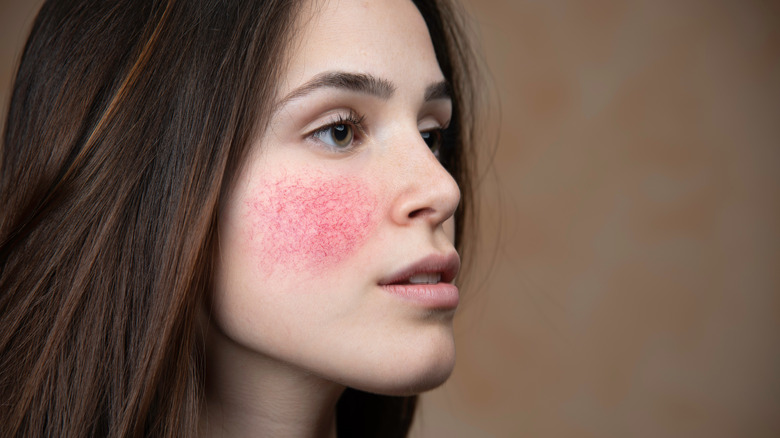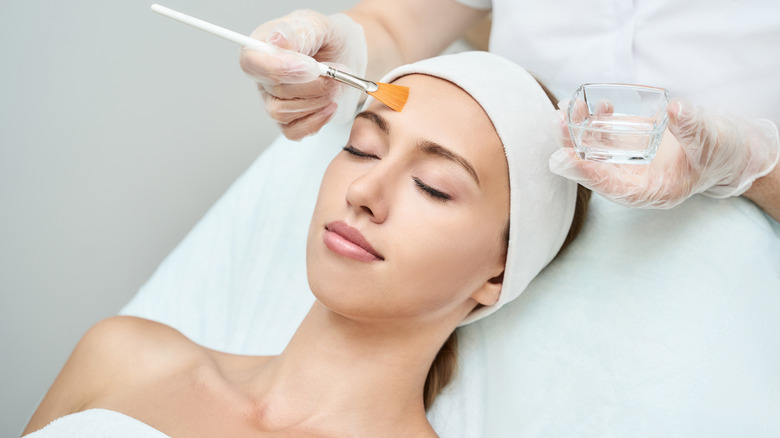Are Chemical Peels Good For People With Rosacea?
Rosacea is a common skin condition that causes redness and small bumps on the face. As a chronic inflammatory condition, rosacea can cause a range of symptoms — including facial flushing, visible veins, swollen bumps or pimples, eye problems, an enlarged nose, and a burning sensation on the skin. While rosacea can affect anyone at any time, it most often affects middle-aged white women, according to Mayo Clinic. Although there is no cure for rosacea, it can be managed with a variety of different treatments.
For instance, skin creams, as well as topical antibiotic ointments, can help relieve inflammation and reduce redness in the face (via Medical News Today). Oral antibiotics can also have anti-inflammatory effects and help alleviate facial discoloration. In addition, dermatologists can use lasers to help reduce the visibility of small blood vessels under the skin. In fact, laser treatments for rosacea can be very effective, especially in conjunction with other skin treatments.
Chemical peels can complement other treatments
As it turns out, chemical peels can be a great way to help manage your rosacea, alongside other treatments. Since rosacea makes your skin more sensitive, however, it's important to stick to gentler peels (via PopSugar). Chemical peels aim to exfoliate the skin, but the degree to which they exfoliate depends on the type of peel. As a matter of fact, the pH level of the peel is particularly important when it comes to safely and gently treating the different types of rosacea.
Skinfluencer senior medical aesthetician Spirithoula Koukoufikis explained to PopSugar that people with rosacea should only get superficial peels that don't have a pH level that is too low (or acidic). "You only want to remove the surface of the dead skin before proceeding with laser treatments to manage and improve the appearance of the condition," she said. This means that superficial chemical peels can help treat rosacea, but should only be used to prep the skin for laser treatments.
Matching the needs of your skin is crucial. As Koukoufikis shared with Glamour UK, "If you use a product that is not suited to your skin type, it can have potential side effects, such as dryness or sensitivity." This means worsening conditions like rosacea, so always remember to be gentle and kind to your skin.


